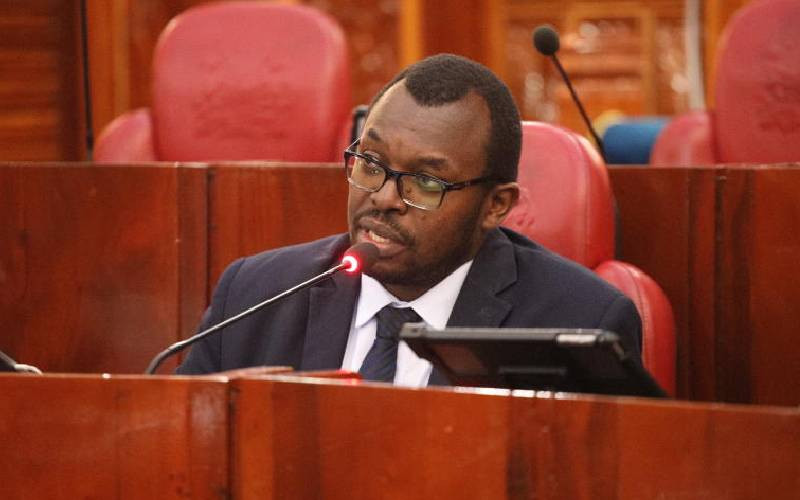×
The Standard e-Paper
Join Thousands Daily

Former NHIF chief executive officer Samson Kuhora when he appeared before the Senate Health Committee at parliament in Nairobi on October 6, 2023. [Elvis Ogina, Standard]
The National Health Insurance Fund (NHIF) was taken to task by MPs to explain why it preferred a more expensive billing system.